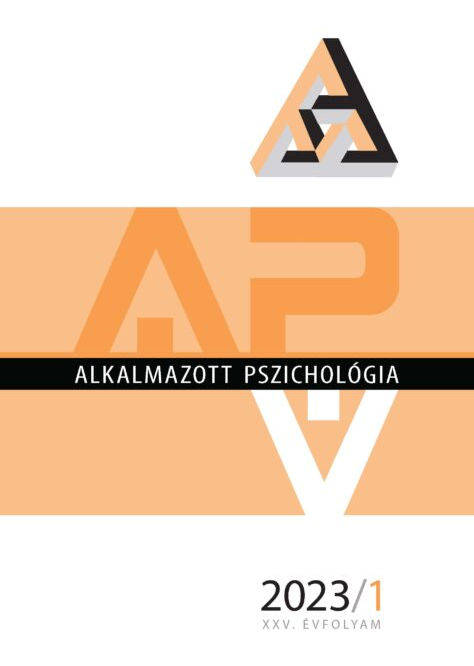The role and characteristics of self-justification in the conflicts among healthcare professionals
DOI:
https://doi.org/10.17627/ALKPSZICH.2023.1.7Keywords:
conflict, conflict resolution, self-justification, healthcareAbstract
Background and aims: Conflicts among healthcare professionals have a direct impact on the quality of patient care (Leever et al., 2010), making it essential to understand the characteristics of these conflicts (Csupor et al., 2017). Self-justification is a common factor in conflicts (Aronson & Tavris, 2009), and exploring its characteristics in the narratives of healthcare professionals is our primary objective.
Methods: We conducted a qualitative analysis of previously recorded semi-structured interviews with 25 doctors and 25 nurses (Csupor et al., 2017). The analysis focused on identifying expressions of self-justification using content analysis.
Results: We identified 371 expressions indicating self-justification and 42 expressions indicating avoidance in the conflict stories. These expressions were categorized into 10 self-justificationrelated categories and 1 avoidance-related category based on their content. The majority of the expressions were found in the Judgment category, which typically involved negative evaluations of the other party. Self-justification-related expressions were more prevalent in the interviews with doctors, accounting for 71.7% of the total, while nurses accounted for 28.3%. Within each category, interviews with doctors contained a higher number of selfjustification- related expressions. Stories of unresolved conflicts tended to have more expressions related to self-justification and fewer expressions related to avoiding self-justification. This trend was consistent across the self-justification categories, with the exception of Sacrificiality, Alliance, and Counter-action.
Discussion: The presence of self-justification in conflict narratives may hinder constructive conflict resolution among healthcare professionals. Therefore, it is crucial to support healthcare professionals in recognizing and transforming self-justification tendencies to promote effective conflict resolution.
